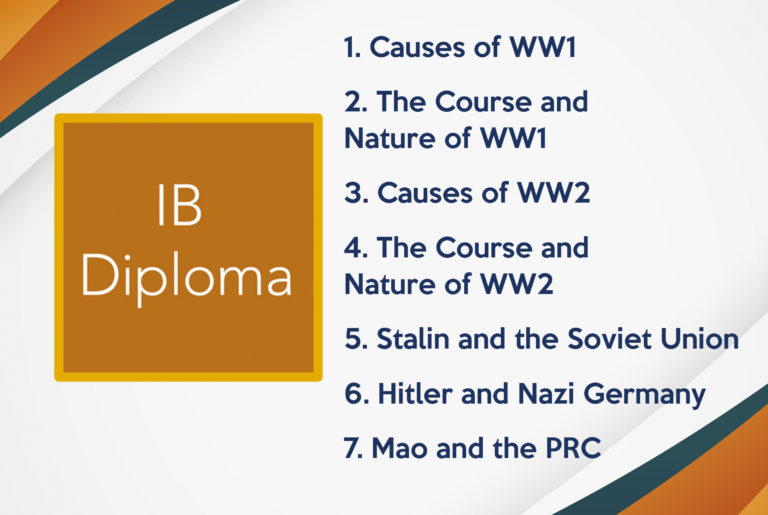To what extent do the events that unfolded during the July crisis of 1914 link to the build-up of tension that had plagued European diplomacy since the unification of Germany?
David Lloyd George, writing in his War Memoirs in 1938, recalled:
‘When I first heard the news of the assassination of the Grand Duke Ferdinand, I felt that it was a grave matter, and that it might provoke serious consequences which only the firmest and most skilful handling could prevent from developing into an emergency that would involve nations. But my fears were soon assuaged by the complete calm with which the Rulers and diplomats of the world seemed to regard the event. The Kaiser departed for his usual yachting holiday in the Norwegian fiords. His Chief Minister left for his usual shooting party on his estate in Silesia. The Acting Head of the German Foreign Office went off on a honeymoon trip. A still more reassuring fact – the military head of the German army, von Moltke, left for his cure in a foreign spa. The President of the French Republic and his Prime Minister were on a ceremonial visit to Russia and only arrived back in Paris on July 29th. Our Foreign Office preserved its ordinary tranquillity of demeanour and thought it unnecessary to sound an alarm even in the Cabinet Chamber. I remember that some time in July, an influential Hungarian lady, whose name I have forgotten, called upon me at 11 Downing Street, and told me that we were taking the assassination of the Grand Duke much too quietly; that it had provoked such a storm throughout the Austrian Empire as she had never witnessed, and that unless something were done immediately to satisfy and appease resentment, it would certainly result in war with Serbia, with the incalculable consequences which such an operation might precipitate in Europe. However, such official reports as came to hand did not seem to justify the alarmist view she took of the situation.`
Now, it is not for the historian to unpick these words like a counsellor cross-examining a witness. But they do serve as a useful tool for the historian to consider the links between the way in which the July Crisis got so out of hand as to bring about World War One, with the tensions that preceded Grand Duke Ferdinand`s assassination. Notably the unification of Germany, the Kaiser`s policy of Weltpolitik, the Eastern Question and the breakdown of the concert of Europe and the phenomenon that many historians refer to as International Anarchy. So, what does the Lloyd George extract tell us?
The first, and highly significant fact was that a major war was not inevitable (nothing in history was inevitable) –
`When I first heard the news of the assassination of the Grand Duke Ferdinand, I felt that it was a grave matter, and that it might provoke serious consequences which only the firmest and most skilful handling could prevent from developing into an emergency that would involve nations. But my fears were soon assuaged by the complete calm with which the Rulers and diplomats of the world seemed to regard the event.’
Then there was the complacency of key decision-makers (the focus is on German decision-makers, but it was the same with all the Great Powers) operating in their own ‘elite world’, far removed from the world of the masses –
‘The Kaiser departed for his usual yachting holiday in the Norwegian fiords. His Chief Minister left for his usual shooting party on his estate in Silesia. The Acting Head of the German Foreign Office went off on a honeymoon trip. A still more reassuring fact – the military head of the German army, von Moltke, left for his cure in a foreign spa.’
And we see that it was very much a “European” issue –
‘The Kaiser departed ….; His Chief Minister left ….; The Acting Head of the German Foreign Office went ….; the military head of the German army ….; The President of the French Republic and his Prime Minister were on a ceremonial visit to Russia ….; … an influential Hungarian lady…’
But the epicentre of the storm was Vienna
‘… it [the assassination] had provoked such a storm throughout the Austrian Empire as she had never witnessed, and that unless something were done immediately to satisfy and appease resentment, it would certainly result in war with Serbia.’
Lloyd George also seems to suggest that it was not a crisis until the Austrian ultimatum – and it took too long to be delivered
‘However, such official reports as came to hand did not seem to justify the alarmist view she took of the situation.` And then came the Austrian ultimatum!’
But still, to what extent do the events that unfolded during the July crisis of 1914 link to the build-up of tension that had plagued European diplomacy since the unification of Germany?
German unification had created an economic and military power in the centre of Europe, stronger one-on-one than either France or Russia.
This was a concern for both France and Russia (France much more so), but hardly a danger to peace.
Until, that is, the Kaiser`s policy of Weltpolitik. Weltpolitik was dangerous because it raised tension and suspicion, led to the build up of alliances, including the end of British isolationism, as well as war plans and the accompanying arms race. This, in turn, converted defensive alliances into potentially aggressive alliances as enemies were targeted and speedy mobilistation became very important. While in Germany Weltpolitik led to a feeling of encirclement and so a need to back Austria no matter the cost. All of which links to International Anarchy. It was also dangerous because it failed, and so left a beleaguered Kaiser and his government in need of a success in foreign policy.
The Eastern Question may seem a separate issue but it links to Weltpolitik (notably Germany`s need to stand by its only secure ally, Austria-Hungary, but also the Berlin-Baghdad Railway).
The Eastern Question also raised Russo-Austrian tension to a series of potential breaking points. Their issues with each other, and, of course, Austria-Hungary`s issues with Serbia are never resolved. And the assassination of the Grand Duke Ferdinand ignites the tension once more and endangers escalation, with Britain and France reluctant participants.





